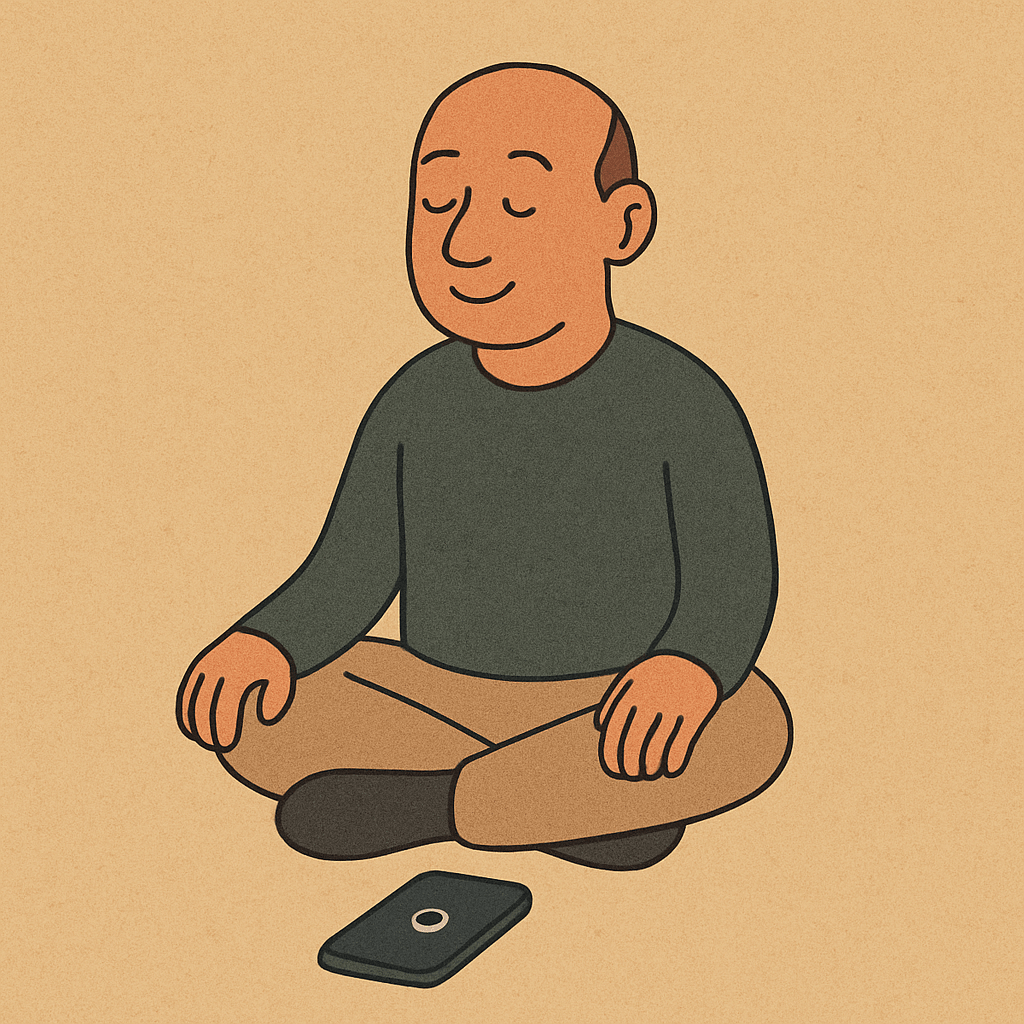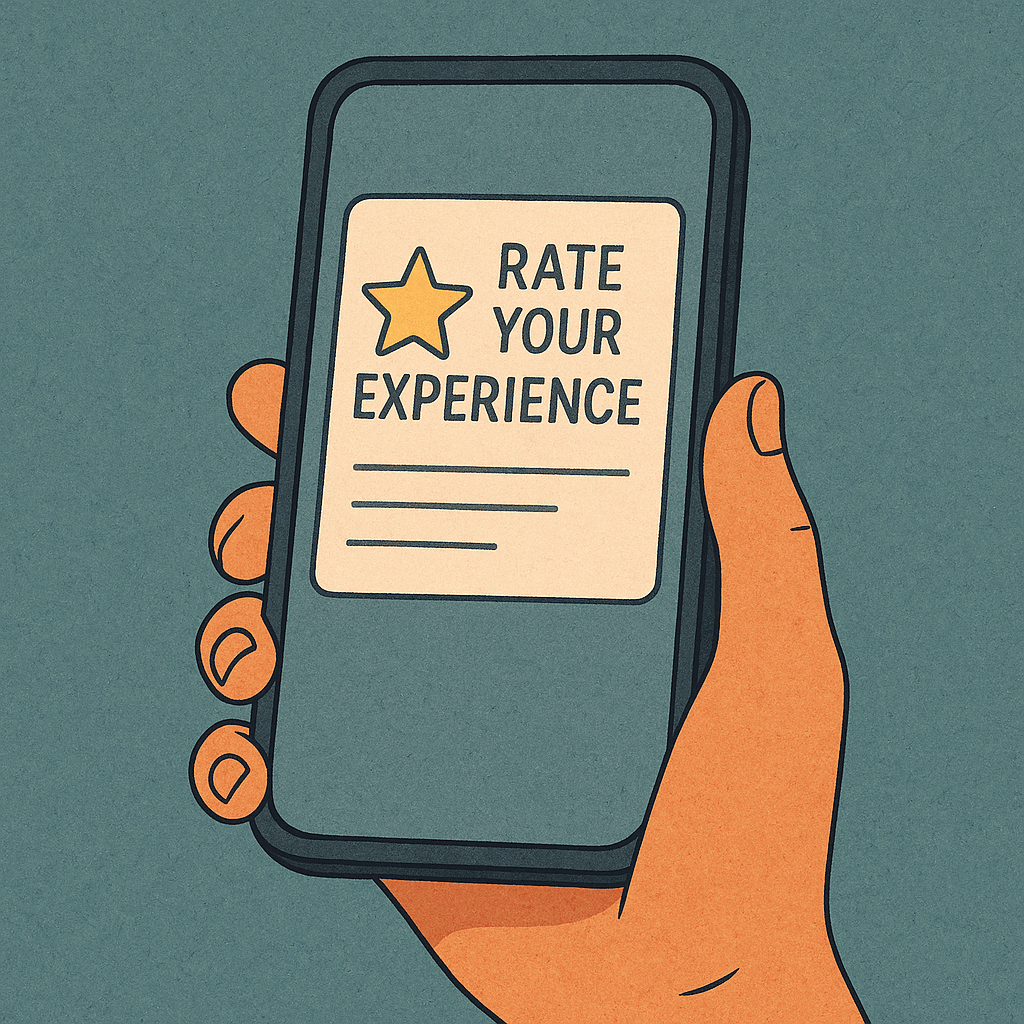Every time I check my phone, it’s there — another email politely demanding my opinion. “How was your recent purchase?” “How did we do today?” “Would you recommend us to a friend?” And for a split second, I think: did I accidentally sign up for a part-time job in quality control?
We’re living in a time where the only thing harder than earning money is spending it quietly.
I didn’t realize that buying toothpaste required a performance review. I can’t even check the time without being interrupted by a notification begging for feedback. And now I’m wondering — do I stop being a consumer altogether? Should I start shopping exclusively with cash in dimly lit stores that still smell like mothballs, just to preserve an ounce of peace and anonymity?
Because let’s be honest — this isn’t feedback anymore. This is data harvesting disguised as care.
The Illusion of Caring (And Why It’s Not About You)
Here’s the thing: companies don’t actually want your feedback. They want your data. They don’t care if your sandwich was lukewarm — they care how fast you ate it, what you clicked after, and whether your misery can be monetized.
We’re told our opinions matter. But if that were true, why does every “suggestion” end up in a digital black hole right next to all the unread Terms & Conditions we blindly agreed to?
Consumer feedback isn’t a conversation — it’s surveillance with a smiley face.
Somewhere out there, a company is pretending to value your opinion while quietly using your one-star review to tweak an algorithm that decides which ad you’ll see next.
And here’s the kicker — they make it sound like a favor. “Your feedback helps us improve!” Oh, I’m sorry — were you about to pay me for my consulting services, or just emotionally manipulate me into filling your corporate KPI quota?
The Psychology of Feedback Fatigue
Psychologists call it “decision fatigue.” I call it “death by survey.”
We’ve been rating things for so long, our brains have confused consumption with evaluation. A coffee isn’t just a coffee — it’s a 4.2-star experience with potential for improvement. A rideshare isn’t a ride — it’s a moral test where you decide if your driver deserves to keep his job.
Somewhere between Uber stars and Amazon reviews, we lost the ability to just experience something.
The scary part? Companies have learned to manipulate our guilt.
Because if you don’t rate your order, you’re not just skipping feedback — you’re actively hurting someone’s performance score. Congratulations, you’re now emotionally responsible for Brad from customer service’s annual bonus.
It’s psychological blackmail at scale.

The Feedback Economy: Unpaid Labor, Unlimited Opinions
Let’s call this what it really is — unpaid emotional labor disguised as engagement.
We buy something, we use it, and then we’re asked to work for the company for free. Fill out this form. Click this link. Share your experience.
And we do it. Why? Because we’ve been trained to.
It’s the same logic that keeps us liking, rating, and reviewing everything — a subtle social conditioning that says our silence equals failure.
We’ve become digital employees in the economy of endless opinion — overworked, underpaid, and emotionally exhausted.
And honestly, it’s exhausting. We’ve become micro-managers of our own consumption, performing invisible labor for brands that make billions.
You know who’s winning? The algorithm. You know who’s losing? Us — the tired, over-surveyed masses, desperately trying to unsubscribe from our own participation.
The Myth of “Better Service”
They tell us feedback improves the experience.
It doesn’t. It just optimizes it for profit.
Your “constructive criticism” isn’t making the burger better — it’s helping them find new ways to sell you the same burger for 30% more.
The entire feedback loop is designed to make us feel powerful while keeping us completely powerless. It’s like voting for a new emoji — it changes absolutely nothing, but you feel like you participated in progress.
And let’s not forget the poor employees caught in this matrix. They don’t actually care about your feedback either — not because they’re apathetic, but because they’re surviving in a system that measures their worth in smiley faces and response times.
They’re stuck performing empathy for people who will later rate them 4 out of 5 because “no one’s perfect.”

Can We Opt Out?
Imagine a world where you could opt out of feedback requests. A world where the default box is unticked, and silence is respected as consent to move on with your life.
It sounds radical — mostly because it’s rare. In the digital economy, opting out is the new rebellion.
Philosophically speaking, this is about consent. We’ve normalized giving it away — our time, our data, our thoughts — without realizing how much of ourselves we’re trading for convenience.
And that’s the modern paradox: we crave individuality, yet we outsource our identity to companies that measure it in click rates.
We used to give feedback to help things improve. Now, we give it so things stop asking.
The Existential Side of Consumer Feedback
Maybe the real problem isn’t that companies want our feedback — it’s that we’ve internalized the idea that everything needs to be rated.
We no longer trust our own experiences unless they’re validated by a star system. It’s not enough to enjoy a meal; we have to photograph it, tag it, and review it, just to prove it was worth having.
That’s not connection — that’s consumption theater.
The philosopher Erich Fromm once said that in a capitalist society, people feel themselves as commodities. I think he’d have a field day with Yelp.
The Ironic Conclusion: Feedback on Feedback
So, what’s the solution? Maybe… stop answering. Ignore the surveys. Leave the forms blank.
When asked “How likely are you to recommend this to a friend?” — say nothing. Not out of spite, but out of principle.
Because maybe the best feedback we can give is silence.
Silence says: “I exist beyond your metrics.”
Silence says: “I don’t owe you my time, my thoughts, or my unpaid labor.”
Silence says: “If I really liked it, I’ll come back. Isn’t that feedback enough?”
The best consumer feedback isn’t a survey response — it’s a quiet act of noncompliance.
So next time your inbox pings with another desperate plea for “just 30 seconds of your time,” remember:
You’re not being rude. You’re being philosophically efficient.
Final Thought
The modern feedback machine is a mirror — one that reflects just how entangled we’ve become in systems pretending to serve us.
Maybe the way forward isn’t to give more opinions, but to guard the ones we still own.
Because in a world obsessed with collecting thoughts, perhaps the most radical act is keeping a few for yourself.





